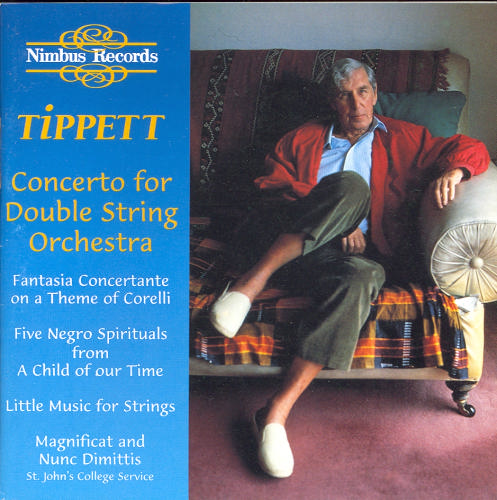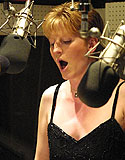December 6th at Bromsgrove Artrix White Christmas
December 6th at Bromsgrove Artrix
White Christmas
Penelope’s Dance Studio directed by Penny Frost
TICKETS ON SALE 01527 577330 boxoffice@artrix.co.uk
CD of the Week- ESO, A portrait of Elgar
Reviews
‘Boughton elicits solid, brilliant, feeling performances … As these performances meld something of Boult’s propulsion and body with an approximation of Barbirolli’s swing, they might serve as the ideal introduction. This production stands strongly recommended.’ Fanfare
‘The Elegy, is given a wonderful degree of gravity without ever over-heating – one of the tenderest versions on disc. The lightweight Serenade for strings is phrased with delicacy. The Chanson de nuit and Chanson de matin are given in arrangements for string orchestra which work well.The set as a whole can be heartily commended to newcomers to Elgar’s music and they give a pretty comprehensive view of his orchestral works.’ Paul Corfield Godfrey, MusicWeb-International.com, August 2012
October 8- A String Pilgrimage, Elgar Concert Hall
October 8th at Elgar Concert Hall, Birmingham University Campus

7:30 PM
English String Orchestra
Kenneth Woods- principal conductor
Tippett- Concerto for Double String Orchestra
John McCabe- “Pilgrim” for Double String Orchestra
Vaughan Williams- Fantasia on a Theme of Thomas Tallis
Elgar- Introduction and Allegro for Strings
Tickets: £16, £12, £8
Town Hall Symphony Hall Box Office 0121 345 0600
Click here for booking details

ESO String Quartet- Michael Bochmann, Angus Gibbon-violins, Helen Roberts- viola, Peter Adams- cello
The ESO’s first concert in the splendid acoustic of Elgar Hall with a survey of the best of English string orchestra music “Pilgrim” by ESO composer-in-association John McCabe is a powerful evocation of John Bunyan’s “Pilgrim’s Progress.” McCabe’s predecessor as ESO composer-in-association was Sir Michael Tippett, whose vibrant and witty Concerto opens the concert. Few works have won the kind of place in listener’s hearts held by Vaughan Williams’ haunting Fantasia, a work the ESO has recorded to international acclaim. Finally, what better finale could there be for a concert in Elgar Hall than one of the master’s own finest works, performed by the orchestra based in his home town of Malvern?
Part of the ESO’s
English String Orchestra- Dvorak and Tchaikovsky
English String Orchestra
Kenneth Woods- principal conductor
Tchaikovsky- Serenade for Strings
Shostakovich- Chamber Symphony op 110a
Dvorak- Serenade for Strings
Kenneth Woods and the English String Orchestra kick off our 2014 season with an evening of string masterworks from Eastern Europe.
Melodious serenades from Dvorak and Tchaikovsky bracket a performance of Shostakovich’s powerful Chamber Symphony opus 110a, conducted by one of today’s most active proponents of his music.
ESO Composer-in-Association John McCabe featured in Gramophone Magazine
The English Symphony Orchestra is proud to inform our community that our 2014 Composer-in-Association, John McCabe, is the focus of a major feature article in the March 2014 issue of Gramophone Magazine. The piece by Guy Rickards looks back across McCabes contributions to musical life on the occasion of his 75th birthday.
CD of the Week- Tippett, Concerto for Double String Orchestra
“The orchestra worked with Tippett himself for a series of recordings in 1985 and 1990, so these recordings are a reflection of that partnership; he was a patron of the orchestra. One would think that he would have approved of these neatly turned performances, with the lines cleanly and precisely delivered by a small body of expert players. Tippett may himself once have regarded romanticism with suspicion, but his music possesses a warmth of emotion that the composer seems to have welcomed in his own recorded performances later in his life. Nevertheless the performances here are excellently turned and certainly give a superb impression of the music.”
Read more:http://www.musicweb-international.com/classrev/2012/Aug12/Tippett_NI7026.htm#ixzz2sHvLqqtD


CD of the Week- Handel Messiah
The ESO’s annual performance of Messiah in partnership with the Saint Michael’s Singers is one of the orchestra’s longest running traditions. The orchestra, under the baton of founder William Boughton, recorded Handel’s masterpiece for Nimbus in 2004.

Click here to buy direct from Nimbus, or here to stream direct from Spotifiy.
There are still a very few tickets available for this year’s concert with our newly appointed Principal Conductor, Kenneth Woods. Concert Details here.
CD of the Week- English Salon Orchestra, In the Spirit of Christmastime
The ESO: English Salon Orchestra returned to Stanbrook Abbey this December to present “The Spirit of Christmastime” – a sumptuous collection of the best Christmas and Holiday melodies. From the reflective to the jolly, there’s something about an ‘old-fashioned’ seasonal soundtrack that is hard to forget and never fails to invigorate the spirit. Now, just in time for Christmas, the ESO are pleased to release this evening of sparkling holiday favourites as the first CD on our new ESO ENGAGE label.
http://youtu.be/mJVhOXrQuL4
The programme features sixteen holiday favorites from the Renaissance to the present day, newly arranged by Simon Lenton for the English Salon Orchestra. You won’t find these sparkling arrangements anywhere else.
Soloists-

Produced and engineered by Paul Arden-Taylor
Purchase CD here:
(£10 + £2 postage and packing for UK orders (usually ships within 24 hours))
Purchase Download here:
(£8)
ESO Programme Notes Online- Shostakovich Chamber Symphony, opus 83a
Dmitri Shostakovich (1906-1975): Chamber Symphony, opus 83a
Shostakovich began work on his Fourth String Quartet in April 1949, during what his long time collaborator, the cellist of the Borodin String Quartet, Valentin Berlinsky described as “the most difficult year for him.” Shostakovich had been denounced by the Party in 1948, and found himself for the second time in his career in fear for his life and the lives of his immediate family. As part of a desperate effort to rehabilitate himself within the musical establishment, Shostakovich worked on a cantata called the “Song of the Forests” alongside the new quartet. “Song of the Forests” was a work of pure propaganda, written in praise of Stalin “the great gardener” in celebration of Stalin’s to convert Russia’s steppes to forest land. The success of that piece in the eyes of the authorities brought Shostakovich a certain degree of respite, but he continued to be extremely cautious about presenting new works until after Stalin’s death. Shostakovich completed the quartet on the 27th of December, and applied to the Ministry of Culture for a commission fee. He and the members of the Borodin Quartet were summoned for an audition. Rostislav Dubinsky, the founding first violinist of the quartet, said that after playing the work through for the committee the first time the reception was quite frosty. Desperate to help Shostakovich receive a badly needed fee, they played the work a second time “more optimistically,” stripping away any anger or irony from their performance, and the Party representatives then accepted the work. Dubinsky’s colleague, Berlinsky, denied this story, which probably says more about the fraught nature of string quartet politics than about what happened that day. Although the new Quartet had officially been accepted by the Ministry, it was held back from performance until after Stalin’s death in 1953. It was one of a number of major works that had been written, in Shostakovich’s words “for the drawer” that came flooding out in the final months of 1953.
Shostakovich maintained a lifelong interest in Jewish music and was a vociferous critic of any form of anti-Semitism. Many of his works, including the Fourth Quartet, incorporate original themes based on Jewish models, and a number of these came from the years just after World War II, when Shostakovich observed with particular horror that even as the memories of the Holocaust were painfully fresh that anti-Semitism began to return to Soviet society. He is quoted in Solomon Volkov’s “Testimony” as saying:
“Despite all the Jews who perished in the camps, all I heard people saying was “The kikes went to Tashkent to fight.” And if they saw a Jew with military decorations, the called after him , “Kike, where did you buy the medals?” That’s when I wrote the Violin Concerto, the Jewish Cycle and the Fourth Quartet. None of these works could be performed then. They were heard only after Stalin’s death. “
In the case of the Fourth String Quartet, it is in the last movement that the influence of Jewish music is most obvious- it is a kind of slow-burn Klezmer march which builds to a monumental climax then tapers off into brooding silence. Many listeners find the extraordinary second movement of the quartet to be the heart of the work- it is deeply personal and melancholy in tone, while the first movement is more extrovert, and the scherzo distinctly Russian in mood.
The Fourth String Quartet was the fourth of five Shostakovich string quartets arranged for larger forces as “Chamber Symphonies” by Rudolf Barshai. Barshai had been the original violist of the Borodin String Quartet, before leaving the group to pursue a conducting career. Barshai had approached Shostakovich and asked if the composer would consider transcribing his Eighth Quartet for the strings of Barshai’s Moscow Chamber Orchestra. Shostakovich declined to do so himself, but encouraged Barshai to have a go, and was sufficiently pleased with the result that he allowed the orchestration to be published as his Opus 110a. Barshai’s later efforts became more ambitious, moving beyond string orchestra for the first time with his orchestration of the Third Quartet by adding solo winds, and then in this arrangement by adding winds, brass and percussion. It is the most ambitious reimaging of any of his chamber symphony arrangements, but result still sounds remarkably like the work of Shostakovich himself.











